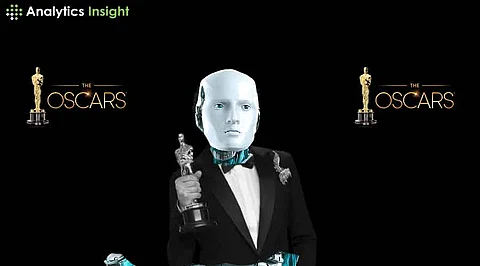

AI has silently transformed Hollywood while audiences remain largely unaware of its growing influence in award-winning films. The Academy of Motion Picture Arts and Sciences recently declared neutrality on AI in filmmaking.
Their statement confirms that generative technology "neither helps nor harms" Oscar nomination chances. This surprising position emerged after Best Picture nominees ‘The Brutalist’ and ‘Emilia Pérez’ admitted using AI to alter performances in 2024.
AI succeeds in cinema when its presence remains undetectable. Traditional visual effects demand hundreds of artists working for months. AI produces similar results overnight. The gap is staggering.
This transformation transcends mere efficiency. It fundamentally alters accessibility. Tools once requiring million-dollar budgets now function on ordinary laptops. Financial barriers to filmmaking have collapsed.
Hollywood has discovered an unexpected truth: viewers reject AI when told about it. Netflix quietly employs AI for aging effects without fanfare. Marvel's "Secret Invasion," however, faced intense criticism after proudly announcing its AI usage. The lesson? Audiences prefer their illusions undisturbed.
The film industry now operates with three distinct AI strategies. The top tier (the James Cameron tier) lets AI drive their movies while masking the technology as "premium handcrafted." They embrace the technology privately while projecting traditional craftsmanship publicly.
The middle tier, represented best by several Netflix releases, already openly states AI as an innovation marker. At the bottom are productions like the US$400 movies "DreadClub: Vampire's Verdict", that are AI driven with minimal human oversight.
All employ AI; they merely discuss it differently. The distinction lies in marketing rather than in its technological usage.
The Academy has always been in a strange love-hate relationship with technological advancement within the art. Consider The Jazz Singer in 1927, which used sound to make silent movies obsolete. Sound seemed like a gimmick in the eyes of the people. However, the film genre was impressed by the reception of its audiences and smooth induction into the Academy. Early color movies followed this same trajectory
This phenomenon can be seen during the controversy surrounding the acting nomination for Andy Serkis' performance capture of Gollum. Serkis had revolutionized character design in "The Lord of the Rings" trilogy. Yet barely received any acclaim from the Oscars. Critics lauded the technical triumph, but the Academy thought the performance was too gimmicky to be considered in the acting arena. Now, the practice of performance capture is a normal practice in moviemaking. Will AI follow the same trajectory of suspicion to acceptance?
Martin Scorsese's ‘The Irishman’ created AI-based de-ageing effects for actors Robert De Niro, Al Pacino, and Joe Pesci. The film garnered ten Oscar nominations, notwithstanding the criticism received for the uncanny look of the de-aging technology, and there was never a question of AI dealing.
AI could either be a boon or existential threat for actors. James Earl Jones allowed Darth Vader's voice to be reproduced through AI for future Star Wars productions by ceding the rights to his voice. At the same time, numerous extras are scared that digital beings will outgrow human performers from now on. The line between "enhancement" and "replacement" visibly coagulates by the day.
The Oscar issue is rather more or less a question mark. Indicating that the Academy is no place to justify anything or hold any ground. How can one judge the contributions of AI? What does a human "central" to this creative process signify? Thus, all paths are completely devoid of certainty.
Labor Unions harbor deep concerns. The 2023 WGA and SAG-AFTRA strikes centered partly on fears of AI replacement. Voice manipulation today may mean actor replacement tomorrow. The slope of transition is slippery and utterly unpredictable.
Clients who provide information to Wall Street think that they will see the first blockbuster Oscar winner affected by AI within the next five years. Irony is that films that heavily employ AI have already grabbed major nominations. It is just that their script snubbed the audience in this performance. This is an Oscar-worthy performance.
The film industry now stands at an unprecedented intersection where technology and artistic expression collide in previously unimaginable ways. The Academy only stipulates that "a human was at the heart of creative authorship." This vague requirement creates a vast gray area. It essentially welcomes AI integration while preserving the façade of traditional filmmaking that audiences crave.
Future blockbusters will seamlessly blend human creativity with AI-powered technology, eliminating the need for "AI-made" or "human-curated" labels. Instead, they'll showcase the best of both worlds.
This synthesis will give birth to films beyond either of the approaches. Since AI will keep evolving, as to what we want from storytelling. Striking a harmonious relationship with an idea.
